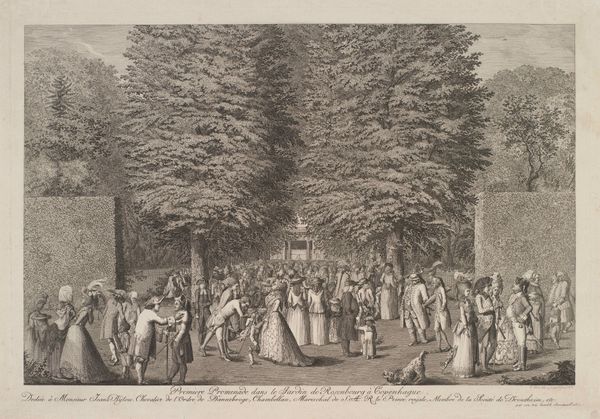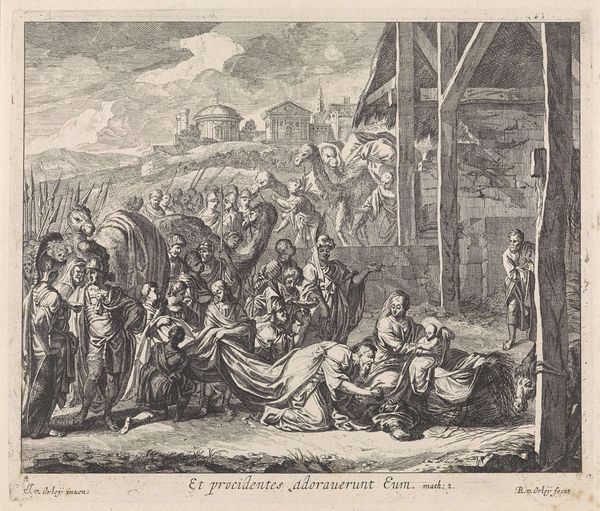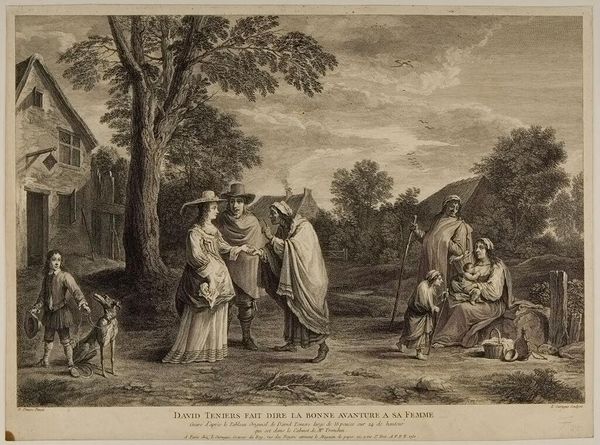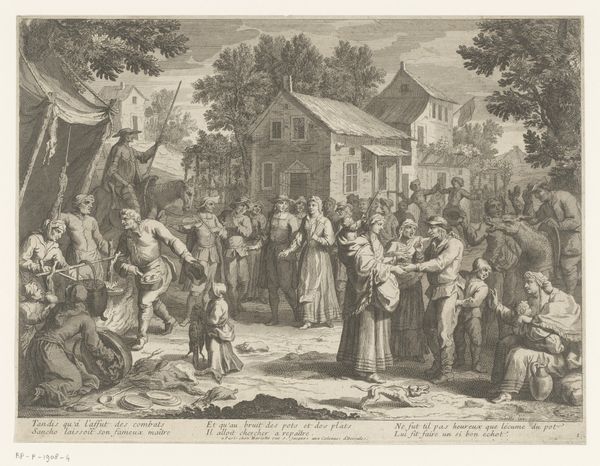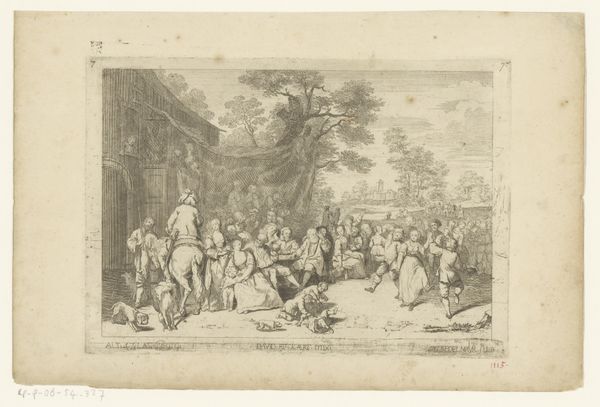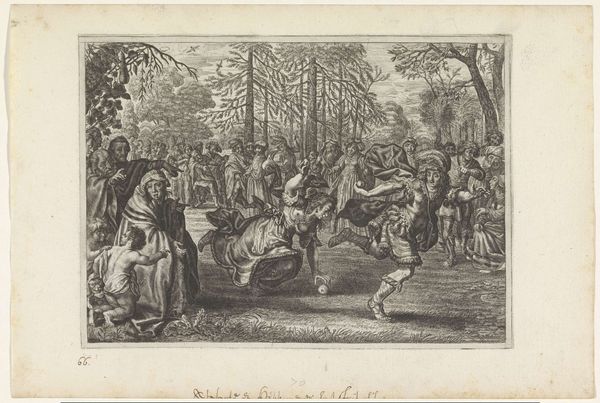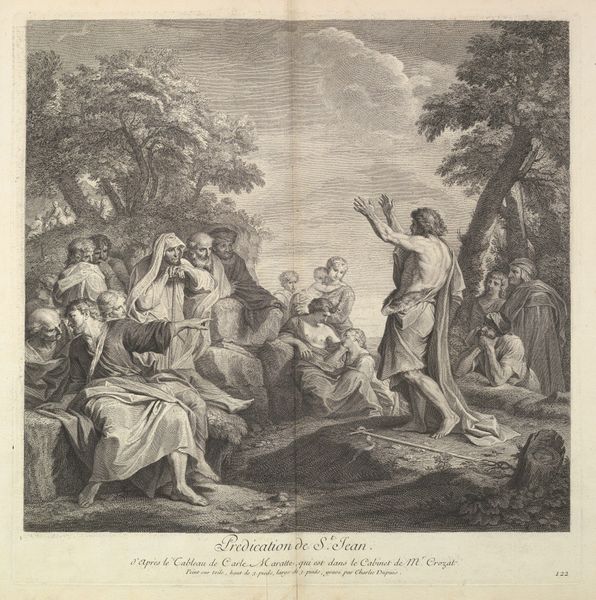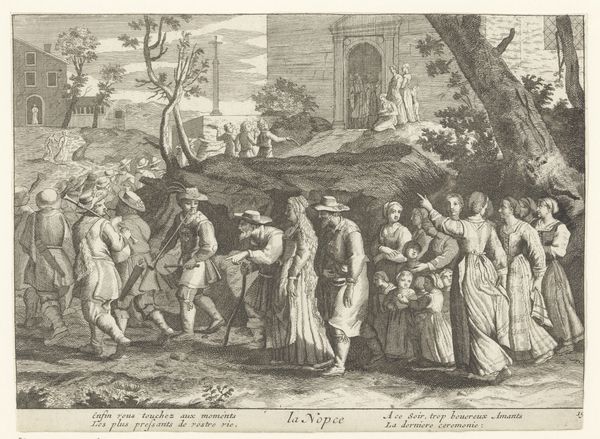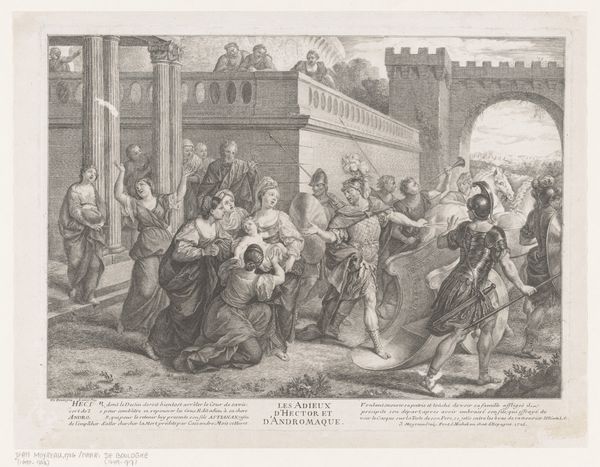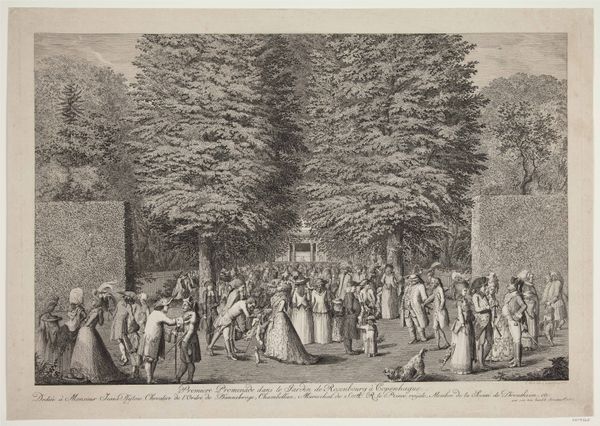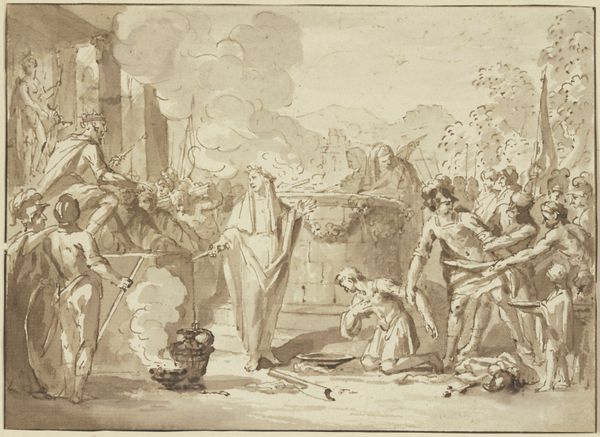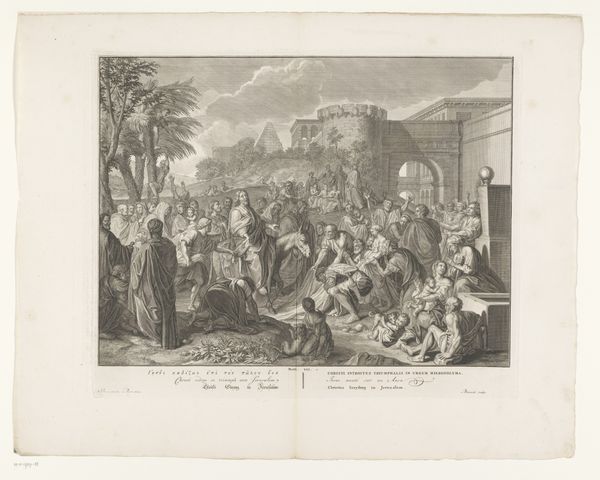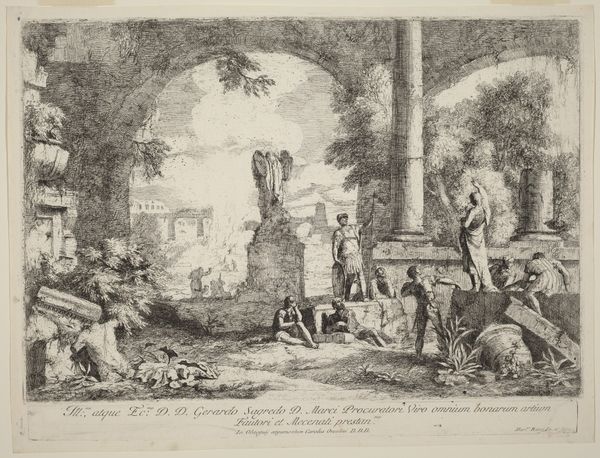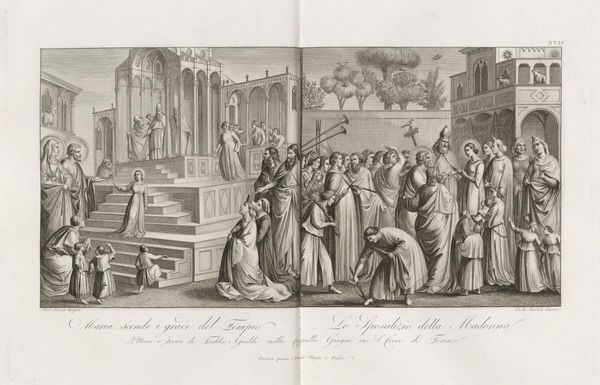
drawing, paper, ink, pencil
#
drawing
#
narrative-art
#
baroque
#
pencil sketch
#
old engraving style
#
figuration
#
paper
#
ink
#
pencil
#
genre-painting
#
history-painting
#
academic-art
Dimensions: height 82 mm, width 107 mm
Copyright: Rijks Museum: Open Domain
Simon Fokke produced this pen and wash drawing titled, *Caesars lijk aan het volk getoond*, sometime in the 18th century in the Netherlands. The image illustrates a scene from Roman history, Caesar’s corpse displayed to the public, but it does so through the visual codes and cultural references of Fokke's own time. Fokke was an accomplished engraver working during a period when the Dutch Republic was reflecting on its own political identity. The choice of this subject matter, the assassination of a ruler and its aftermath, invites us to consider the political and social values of the Dutch Republic. What does it say about the public role of art that Fokke chose this scene? Was the artist trying to say something about the nature of power, or the dangers of autocracy? To fully understand this work, one might consult historical texts, political treatises, and contemporary accounts of Dutch society during the 18th century. By exploring the social and institutional context of the artwork we can gain a deeper appreciation of its meaning and relevance.
Comments
No comments
Be the first to comment and join the conversation on the ultimate creative platform.
